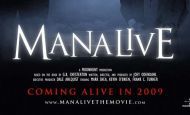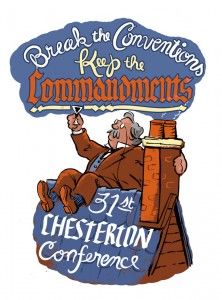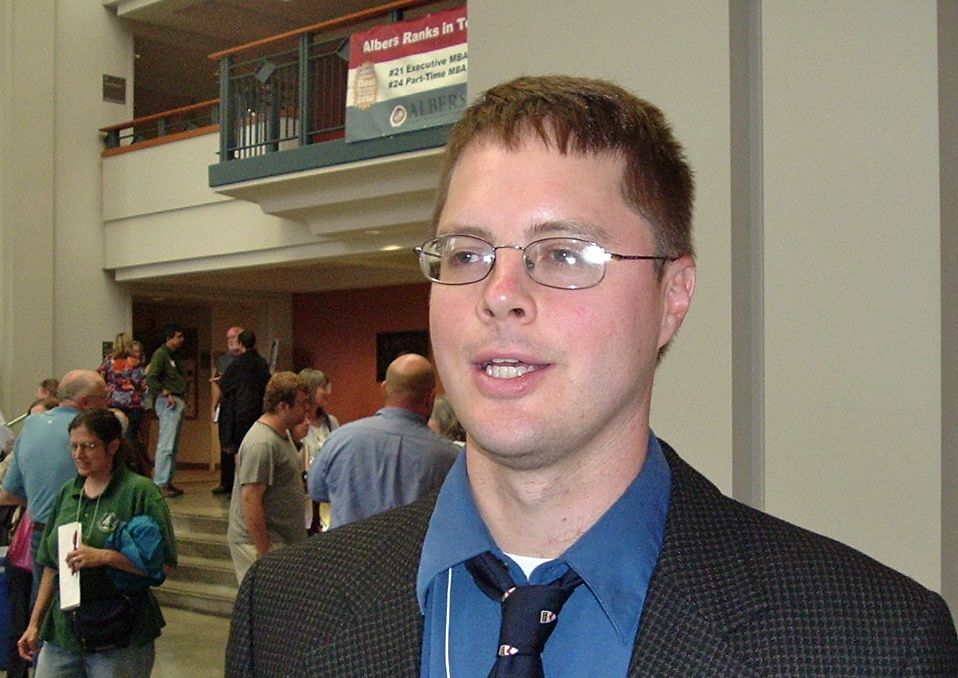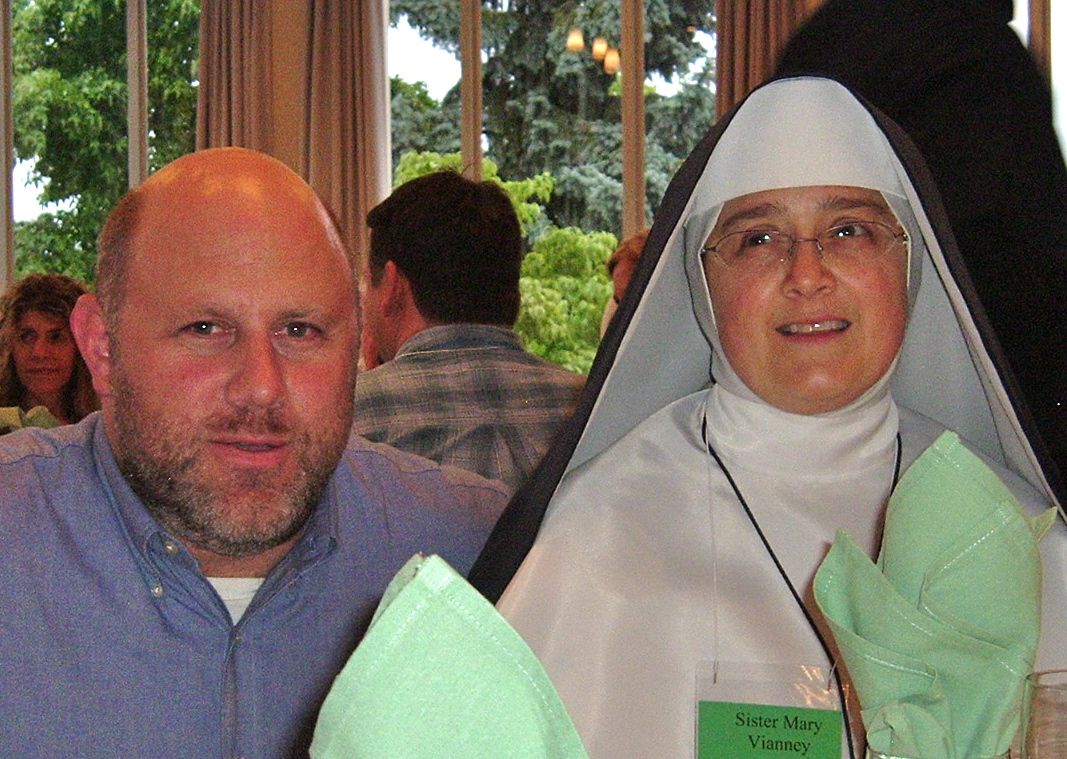| alivingdog.com |
Books |
 Featuring the movie
premiere of Chesterton's novel, Manalive
|
31st Annual Chesterton
Conference:
The Beano in Reno The 31st Annual G.K. Chesterton
Conference will be Aug. 2-4, 2012, at the Silver Legacy Hotel (and
Casino) in Reno, Nevada.
Discounted room rates are
available for conference attendees who stay at the Silver Legacy
Hotel! Call 1-800-687-8733 and mention group code ACS812 to
reserve your rooms today at the discounted rate.
For more information: http://www.chesterton.org
|
 |
 Celebrating the 100th anniversary of Chesterton's book, Tremendous Trifles.  Friday night saw the world premiere of
a new Father Brown mystery with Kevin O'Brien as Father Brown, and a
discussion with the cast and crew.
The DVD is available from EWTN by calling 1.800.854.6316 (no. HDTOW8). |
A Trifling Affair:
Notes on the 28th
Chesterton
Conference
-By
Gord Wilson.
The 28th annual conference, held
August 6-8
2009 at Seattle University, was the first to take place out of the
midwest, and celebrated, after a fashion, the centennial of the 1909
publication of GKC's light essay collection, Tremendous
Trifles, recently
reprinted by Dover. While I attended the entire 25th conference (see
below), I only caught the last day (Saturday) of this one. Hopefully
someone who attended the other days will provide a review and
reflection.
The following talks are available on
audio CD for $6 each, or the set of eleven CDs for $55, from the
American Chesterton Society site: http:www.chesterton.org. "The Danger of Trifling with Chesterton
(Dale Ahlquist);
"Learning to Fly" (Geir Hasnes);
"Revolvers and Swordsticks: The Roots of Chesterton's Spiritual
Theology" (Nathan Allen);
"GKC and Education: Why We No Longer Use Chalk" (Carl Hasler); "Chesterton and
War" (Michael Perry);
Chesterton and Drama (Kevin
O'Brien); "Chesterton and Frank Capra" (Rod Bennett); "Chesterton and
Alfred Hitchcock" (David Deavel);
"Becoming Innocent" (Mark Shea);
and "Seven Days and Seven Heavens: Chesterton and C.S. Lewis" (Michael Ward).
|
Saturday
morning began with a talk on Chesterton and filmmaker Frank Capra by
Rod Bennett, author of The Four
Witnesses. As the former editor of a
magazine called Wonder, he
had once published a piece by Chesterton
Society president, Dale Ahlquist, on Capra's "It's a Wonderful Life".
In this, and other Capra films, he saw GKC's ideas incarnated. After
giving some bio and how he came to read GKC, Rod noted that comedy is
one of the most serious art forms, because it brings the mystery of
life to light in ways more serious art forms cannot do.
Rod called Chesterton an apostle of
affirmation in a world gone gray. Similarly, he noted that while his
films are often dismissed as "Capra corn", faith and joy are hard-won
in Capra's films, which show that the same set of facts can have both a
joyful and a dark side. He mentioned Eric Gill, and two distributist
books related to the agrarian revival, I'll Take My Stand, and Who Owns
America? which date from that era, and with which I am not familiar. He
closed recommending something with which I am familiar, the Bell
Science animated films, written by Frank Capra and animated by Shamus
Culhane. Or at least the first four were, which include "Hemo the
Magnificent" and "Our Mr. Sun", and are available from Amazon with two
films per DVD http:www.CartoonsWithoutCable.com
|
|||||||
Continuing the film note, David
Deavel, a writer for Gilbert!
magazine and an editor for Logos
magazine, spoke on Chesterton and Alfred Hitchcock. Most of the
audience had far more interest in Hitchcock than I did, judging from
the questions. But the presentation was nevertheless one of the best
I've heard. Commenting on Hitchcock's film of John Buchan's novel, The
39 Steps, he noted that people like to feel fear when they are
safe.
Hitchcock read Chesterton's first essay collection, The Defendant, in
which GKC "defended" penny dreadfuls and popular culture. Crime stories
are essentially fairy tales, noted GKC. "The temptations to crime are
in life and not in literature." David found a great deal in common
between the two writers, noting in some of Hitchcock's films a pattern
of guilt, confession, penance, and redemption. He also cited this
telling quote from GKC's priest detective, Father Brown, in The Hammer
of God: "I am a man, and therefore have all devils in my heart".
"A man should feel he is still in the
childhood of the world," remarked
GKC in his novel, The Club of Queer
Trades, and David noted that in
Hitchcock's films, as in Chesterton's novels, the essence of the story
is in the chase. He suggested that GKC's novel Manalive may have
influenced Hitchcock's little-seen The
Trouble with Harry. Remarking
on the upcoming film of Manalive,
he claimed the Belgians had already
made a film from the novel, titled Return
to the Redhead, which
hopefully will circulate with English subtitles.
He quoted Borges, saying that
"Chesterton restrained himself from being
Poe or Kafka, but something in him strained toward the nightmare,"
pointing out that The Man Who Was
Thursday is subtitled "A Nightmare".
Both the filmmaker and novelist explored the collision of the ordinary
and extraordinary, in attempting to "find the floor in the universe".
It was here, however, that the two men diverged. In a film like The
Birds, inconvenience turns to horror. "An inconvenience,"
Chesterton
maintained, "is only an adventure wrongly understood, while an
adventure is an inconvenience rightly understood."
|
| GKC in St. Paul Thoughts on the 25th Annual Chesterton Conference |
|
| by Gord Wilson |
(The twelve talks
from the conference are available from the ACS (see link) on CD for $8
each or $75 for all twelve. I briefly describe them below).
| Gord and Dale Ahlquist |
Adam Schwartz |
Carl Olson |
"The Best of All Impossible Worlds"
was the theme of the 25th Annual Chesterton Conference sponsored by the
American Chesterton Society, and held June 15-17, 2006 at the
University of
St. Thomas in St. Paul, Minnesota. Having far more in common with St.
Thomas (not Aquinas, the doubting one) than St. Paul, I doubted it
would work out to go, but against
all odds it somehow did and Eric (EW) and I made the trek from the
Northwest. With many others we found room and board at the U of St.
Thomas, and after the conference Kathleen kindly put us up on her floor
until our return flight.
The conference logo depicted Charles Dickens and GKC, on the anniversary of the latter having written a bio of the former. That occasioned the talk by Jill Kriegel on "A Chestertonian Reading of Dickens' Dombey and Son." The other talks tended to be titled "Chesterton and ____," so that you didn't even need to know who GKC was to be interested ( even knowing who he was some of the titles intrigued me).
The conference logo depicted Charles Dickens and GKC, on the anniversary of the latter having written a bio of the former. That occasioned the talk by Jill Kriegel on "A Chestertonian Reading of Dickens' Dombey and Son." The other talks tended to be titled "Chesterton and ____," so that you didn't even need to know who GKC was to be interested ( even knowing who he was some of the titles intrigued me).
Dale Ahlquist, president of
the ACS, kicked off the proceedings Thursday night with "Abandon All
Hopelessness, Ye Who Enter Here". He was followed by John Peterson, the
founding publisher of Gilbert
Magazine (titled for G.K.C.'s middle
name) the official publication of the
ACS, on "Chesterton and Marshall McLuhan". McLuhan was the '60s media
critic who made the witty observations "the medium is the message" and
"the medium is the massage". I even managed to find a used McLuhan book
on one of the many book tables.
Friday after Jill Kriegel's talk Father Stanley Jaki held forth on "Charles Dickens and Charles Darwin: The Two Who Never Met". He also had a book table. I bought Chesterton: A Seer of Science. A long time ago I read Jaki's book, Brain, Mind and Computers, which won the Templeton Prize. Geir Hasnes came from Norway to present his talk, "Trials and Triumphs of a Chesterton Bibliographer." It focused on his efforts to compile a definitive and exhaustive bibliography of all things Chesterton. His powerpoint presentation was itself exhausting, although enlivened by Geir's sparkling and ironic sense of humor. He has searched minutaie wordwide in this monumental task which, when completed, will be a time warp in Chesterton scholarship.
Friday after Jill Kriegel's talk Father Stanley Jaki held forth on "Charles Dickens and Charles Darwin: The Two Who Never Met". He also had a book table. I bought Chesterton: A Seer of Science. A long time ago I read Jaki's book, Brain, Mind and Computers, which won the Templeton Prize. Geir Hasnes came from Norway to present his talk, "Trials and Triumphs of a Chesterton Bibliographer." It focused on his efforts to compile a definitive and exhaustive bibliography of all things Chesterton. His powerpoint presentation was itself exhausting, although enlivened by Geir's sparkling and ironic sense of humor. He has searched minutaie wordwide in this monumental task which, when completed, will be a time warp in Chesterton scholarship.
Kurt Griffen compared and contrasted De Tocqueville's "Democracy in America" with GKC's "What I Saw in America," although his bio billed him as "an opera singer in a rock band." Later at the banquet he fortunately regaled us with the latter talent. "Chesterton Unplugged" was the title of Christopher Check's talk, although he was far too animated to be considered a "speaker" and it was far too explosive to be termed a "talk". Absolutely Chestertonian in that regard. What else to expect from the Executive Vice President of the Rockford Institute? We also had the opportunity to subscribe to their publication, Chronicles, at an absurdly low rate (so I did).
After dinner (for those of us who threw for room and board), Joseph Pearce, the inexhaustible biographer of anyone you can name, held forth on "Chesterton and C.S. Lewis". Some of the material touched briefly on his book, C.S. Lewis and the Catholic Church, which was all fine with me as I found that a delightful read. And really, how could he not draw from his own books, which nearly took up an entire table in the foyer? The highlight of Friday night was a performance of GKC's play, The Surprise. Dale Ahlquist's daughter did an amazing job as the princess. Apart from that I don't know any of the actors, but I'm quite sure that info will be on the ACS website (see link).
| Gord, Dale, Dorothy
Schlinger, Erich (EW) |
The Tremblays of
Texas and Gord |
He identified two modern mistakes: 1. that man is a thing, neither male nor female, and 2. that man is an animal. Man is not a breeeder like a chimpanzee, he said, calling modern culture "serial polygamy". The reason for long life, he noted, is life-long learning. Regarding marriage, he said that pair-bonds get tighter the longer they continue. This also has an ancient reason: hunting could not go on if humans mated outside the pair-bond. He also spoke in favor of maintaining genetic diversity. Destroying it leaves nothing for the unforseen future. Altogether amazng and a lot of food for thought.
I greatly enjoyed Adam Schwartz' talk on "Chesterton and Malcolm Muggeridge" and his small group discussion on the Inklings. Being in the Malcolm Muggeridge Society, that was one of the draws for me of the conference. I have far too many notes to quote. He's the author of a giant scholarly tome called The Third Spring which is about Chesterton, Graham Greene, Christopher Dawson and David Jones and the Catholic Literary revival in Britain, the Second Spring being associated with Newman). Amazon's price for this book is $65, to no fault of Adam's. I suggest in my Amazon review to view it as four biographies at about $15 each (it's certainly that much reading). I also suggest skipping the scholarly intro. and diving right into the Chesterton part (chapter one). At any rate, after his talk I went to the UST library and dove into his massive tome.
"Chesterton and the DaVinci Code" was the arresting title of the talk by Carl Olson, author of The DaVinci Hoax and Will Catholics Be Left Behind? Carl writes a lively column in The National Catholic Register which, like his talk, evidences his quick mind and sharp wit. The last talk by Steve Miller was also one of the most popular, relating to another current cultural phenom, "GKC vs. CSI" by Steve Miller, "a Minneapolis labor attorney and detective fiction expert". There was also a small group seminar time when one could choose from five discussions (I went to Schwartz and the Inklings).
The banquet was a lot like GKC's view of the Inn, replete with music, jokes, a catered feast, wine and bon homie. There was also a contest for clerihews, that odd limerick-like form invented by GK and E. Bentley and taking the form AABB. Each evening we night people stayed up nearly all night drinking beer and smoking cigars, hopefully observing GK's dictum, that "we should thank God for beer and burgundy by not drinking too much of them." One night I jumped into a great talk with Joseph Pearce and Carl Olson on punk rock and gospel rock, one of my favorite topics. There was also iced tea and homemade wine provided in the daylight hours, along with crackers and cheese. I very much enjoyed the New York contingent who not only seemed to supply an infinite amount of beer but put on a midnight barbeque with dogs on the grill. As GK probably wouldn't say, jolly good show! (The Chesterton Conference is an annual occurrence, as noted above. The 27th one, in 2008, was the Orthodoxy Centennial, celebrating the 100th anniversary of G.K.C.'s most widely read book, Orthodoxy. Talks from these other conferences are also available through the Society. -Gord Wilson.






